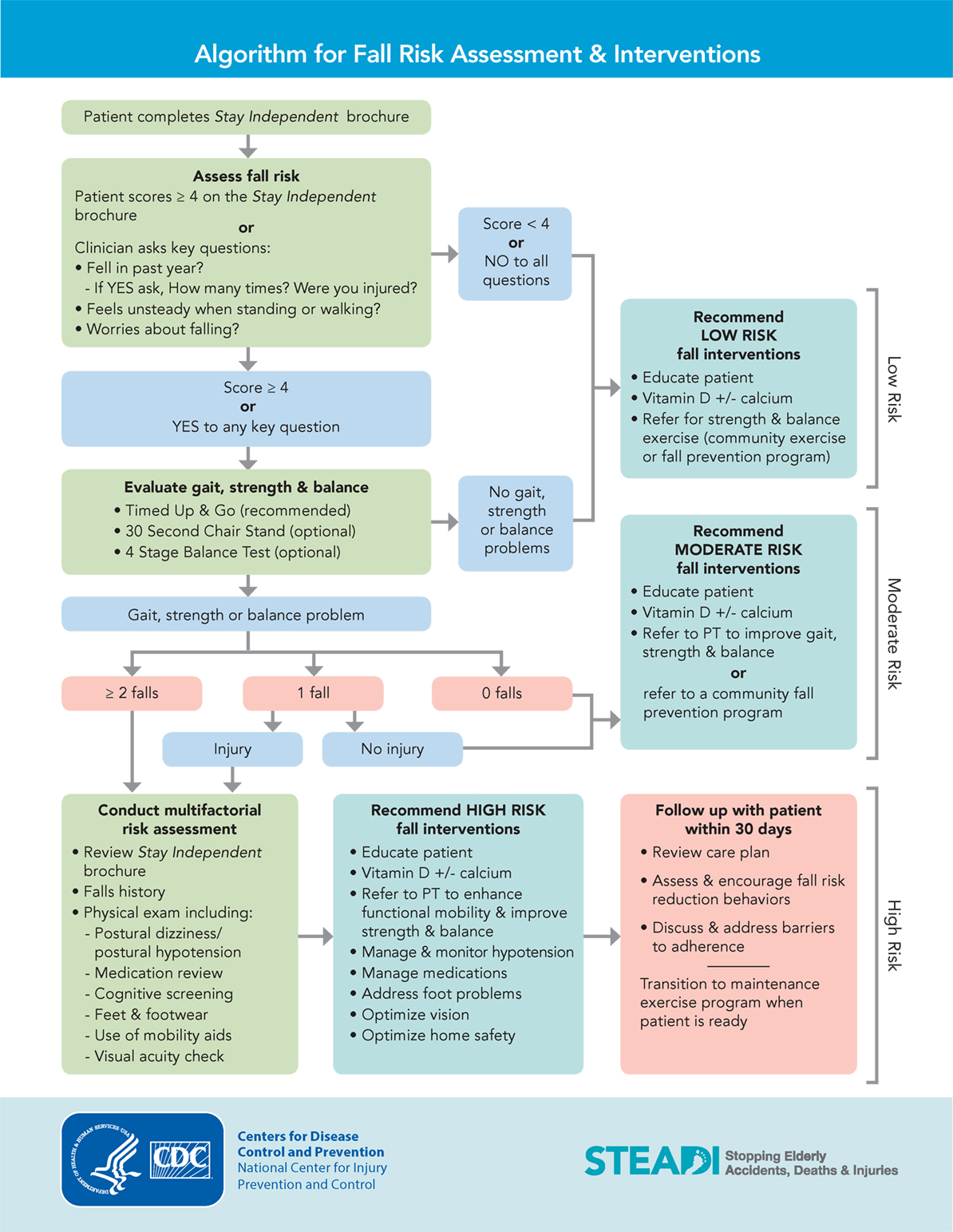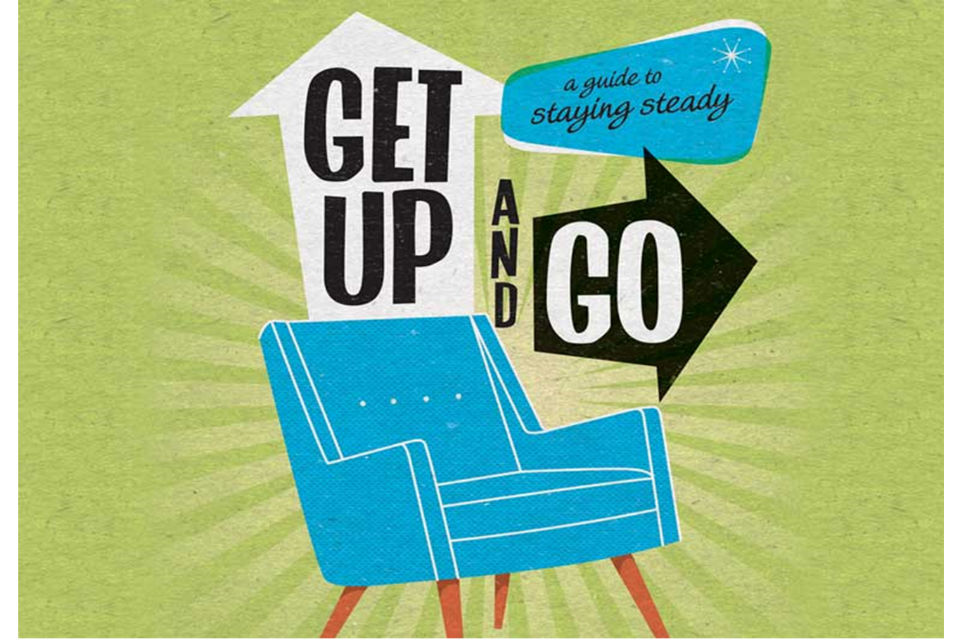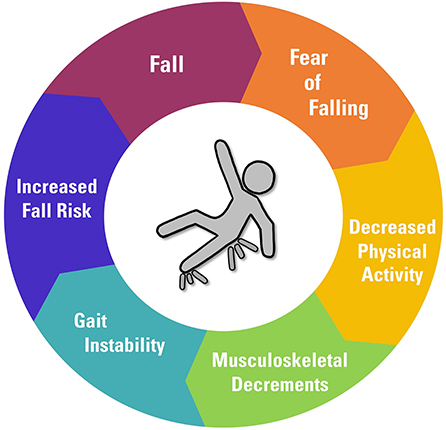Dementia Fall Risk for Beginners
Top Guidelines Of Dementia Fall Risk
Table of ContentsAll About Dementia Fall RiskThe Basic Principles Of Dementia Fall Risk The 45-Second Trick For Dementia Fall RiskDementia Fall Risk - An OverviewThe Facts About Dementia Fall Risk Revealed
The FRAT has three areas: drop risk condition, threat factor checklist, and action strategy. A Loss Threat Condition consists of data regarding history of current drops, medications, mental and cognitive condition of the individual - Dementia Fall Risk.If the patient ratings on a threat aspect, the matching variety of factors are counted to the patient's fall danger score in package to the much appropriate. If an individual's loss risk score totals five or higher, the person is at high risk for falls. If the patient scores just four factors or lower, they are still at some risk of dropping, and the nurse must utilize their best clinical assessment to take care of all loss danger factors as part of a holistic treatment plan.
These common strategies, generally, help develop a secure atmosphere that reduces unintended drops and delineates core safety nets for all clients. Indicators are essential for individuals in danger for drops. Doctor require to acknowledge that has the problem, for they are accountable for executing actions to advertise client safety and avoid falls.
The Ultimate Guide To Dementia Fall Risk
Wristbands need to consist of the person's last and first name, day of birth, and NHS number in the UK. Only red shade needs to be made use of to indicate special individual standing.
Products that are too much may need the person to connect or ambulate needlessly and can possibly be a danger or add to falls. Helps prevent the client from going out of bed without any assistance. Registered nurses reply to fallers' call lights extra promptly than they do to lights started by non-fallers.
Aesthetic impairment can greatly cause drops. Keeping the beds closer to the flooring decreases the threat of falls and serious injury. Putting the mattress on the flooring significantly decreases loss danger in some healthcare setups.
An Unbiased View of Dementia Fall Risk
Patients who are tall and with weak leg muscular tissues that try to remain on the bed from a standing setting are likely to fall onto the bed since it's as well reduced for them to lower themselves safely. Additionally, if a high client efforts to get up from a low bed without support, the individual is most likely to fall back down onto the bed or miss the bed and drop onto the flooring.
They're created to advertise prompt rescue, not to stop drops from bed. Distinct alarm systems can additionally advise the individual not to get up alone. The usage of alarm systems can likewise be a substitute for physical restrictions. Apart from bed alarm systems, boosted guidance for high-risk individuals additionally might assist stop investigate this site drops.

Clients with an evasion stride boost autumn chances dramatically. To lower autumn risk, shoes need to be with a little to no heel, thin soles with slip-resistant tread, and support the ankle joints.
The Ultimate Guide To Dementia Fall Risk
Clients, specifically older adults, have actually minimized visual ability. Lighting an unknown environment aids boost visibility if the individual have to stand up at evening. In a research study, homes with adequate illumination record fewer falls (Ramulu et al., 2021). Improvement in lights at home may lower fall rates in older adults (Dementia Fall Risk). Using stride belts by all healthcare providers can advertise safety when helping people with transfers from bed to chair.

Caretakers view publisher site are efficient for ensuring a safe and secure, protected, and safe environment. Studies showed very low-certainty proof that sitters reduce fall danger in severe care health centers and only moderate-certainty that alternatives like video monitoring can decrease sitter usage without increasing loss threat, recommending that sitters are not as useful as originally believed (Greely et al., 2020).
How Dementia Fall Risk can Save You Time, Stress, and Money.

Enhanced physical fitness minimizes the risk for drops and restricts injury that is suffered when loss transpires. Land and water-based workout programs may be similarly advantageous on equilibrium and gait and therefore decrease the danger for falls. Water workout may contribute a positive benefit on balance and gait for females 65 years and older.
Chair Rise Exercise is an easy sit-to-stand workout that assists enhance the muscles in the upper legs and buttocks and boosts flexibility and independence. The objective is to do Chair Increase workouts without using hands as the customer becomes more powerful. See resources area for a detailed direction on just how to carry out Chair Increase exercise.